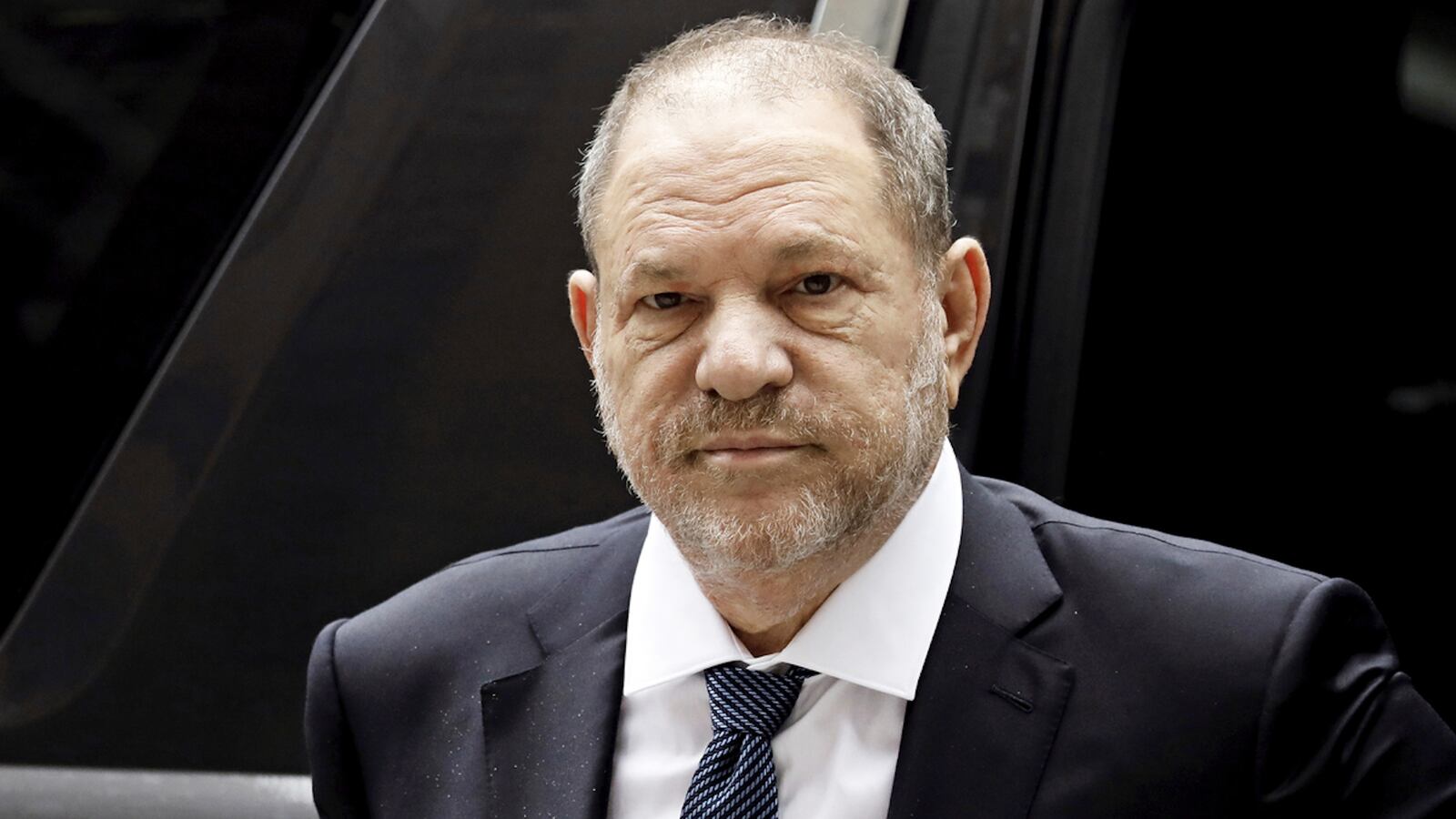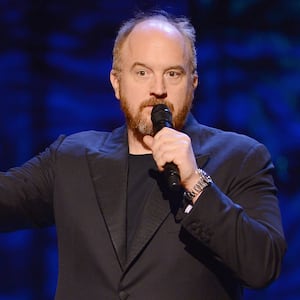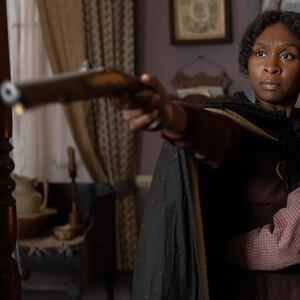“New York City harbors talent in many, many shapes and guises. It cultivates, nurtures and feeds the creative and offers the world’s biggest and most varied audiences. But the road to your chosen stage or limelight is not easy, and certainly not for the faint of heart.”
These are the words of Alexandra Laliberte, the young founder of Actors Hour, a showcase for performers hosted at venues throughout New York. Actors Hour, which Laliberte started in 2018, has recently come under fire for welcoming Harvey Weinstein. Yes, that Harvey Weinstein, who has been accused of sexual misconduct, including rape, by multiple women—mostly current and former actors—and is currently awaiting trial for five charges of rape, sexual assault, and “predatory sexual assault,” to which he has pleaded not guilty. The trial will begin on Jan. 6.
In the meantime, Weinstein has found himself, not once, but twice, at Actors Hour events. The most recent instance occurred at Downtime Bar in the East Village on Oct. 23. According to comedian and actor Amber Rollo, who was present at the event and tweeted about it, a person in attendance began protesting Weinstein’s presence at the show’s intermission, directly confronting him. “[They were] shouting and crying and seemed to be the only sane person there. [THEY were] kicked out,” Rollo tweeted. This person has been revealed to be Zoe Stuckless, a 21-year-old actor and playwright (Stuckless uses they/them pronouns). Stuckless told BuzzFeed that a man escorted them out of the event, repeating “due process, due process.”
Comedian Kelly Bachman, a friend of Rollo’s, used part of her set to address “the elephant in the room,” and received heckles in turn. “Just a general fuck you to the Freddy Krueger in the room,” she continued on. At the previous Actors Hour event Weinstein showed up to on Sept. 30 in the Lower East Side, comedian Ricky Brown quipped, “Hey, is that Harvey Weinstein? Hi Harvey, I read that you raped a bunch of women.” According to an attendee, Brown was “chastised by the hosts” for souring the mood.
After the Downtime incident, Laliberte posted an apology, of sorts, on Facebook, in which she claimed that after the first time Weinstein attended Actors Hour, nobody complained (attendees of the Sept. 30 event dispute this). Her statement reads, in part:
“As always, I welcome and encourage an open dialogue between myself and the community, when I did not receive any feedback on his presence, I chose not to turn him away when he returned. I was subsequently not prepared to handle such a high-energy situation.
“I am deeply saddened that this was not only triggering for attendees, but that they ultimately felt unsafe—some even outraged—when a safe environment is, at its core, what I set out to create. Creating an environment that is at once safe but also leaves open forum for free speech is an extremely fragile endeavor.”
About Stuckless’ removal from the event upon exercising their own right to free speech, Laliberte wrote, “When [Mx.] Stuckless confronted Mr. Weinstein directly, I couldn’t hear what was being said—and wasn’t sure if someone was beginning a performance or monologue. By the time [they were] walking out it was too late. [They] should not have been encouraged to leave. Then and there, I should have shut down the event or given [Stuckless] the microphone to vocalize [their] feelings, but I was in total shock and I let my fear and inexperience paralyze my decision making ability.”
There is, to use a cliché, a lot to unpack in Laliberte’s statement, which is also why it provides an opportunity to better understand what happens to workers in the entertainment industry— especially those without multi-million dollar contracts being offered to them—when they speak up about their conditions. Laliberte describes Actors Hour as a speakeasy “built with the purpose of creating our own tables in an industry that oftentimes leaves so many artists out of the current ones that have stood for too long.” But with Actors Hour, Laliberte has not only offered performance opportunities to actors mostly shut out of the industry, but also to a credibly accused abuser who used to control the very industry that ignored these performers. To her, this was the balance required to create an “open forum for free speech.”
The bombshell investigative stories published in The New York Times and The New Yorker on Weinstein’s abuses both detail the quid pro quo involved in the producer’s reported misconduct, which often included promising success to the female actors who withstood his abuses and sabotaging the careers of those who did not. The abuse was apparently, itself, business. So that Weinstein would attend an event filled with young, hopeful actors like the very ones he is accused of sexually assaulting, all while awaiting trial for crimes which, if he is convicted, could land him in jail for the rest of his days, comes as no surprise. To the alleged cancel culture’s chagrin, the men denounced in the wake of #MeToo (and before it)—from Louis C.K. to Woody Allen to Casey Affleck to Roman Polanski and others—will keep coming back for more. They feel it is their right.
The conversation around this reality—male entitlement, especially men who have been accused of wrongdoing—often focuses on whether these men deserve to be welcomed back into society: Will Louis ever tell another joke in public again? Aren’t we all worthy of redemption? What does a guy got to do to get another multi-million dollar deal in this town? But the more urgent, and meaningful, conservation is about those who have not yet succeeded in the industry, from up-and-coming comedians to struggling actors to the staff who serve at the bars, clubs, and festivals where these men tend to trickle back in, and how more space might be made for their voices, dissent, ideas, disavowals. If action around #MeToo within the entertainment industry is only interested in the performers who already have leverage—SAG and WGA members, TV regulars, award-winners, and movie stars—then the abuses will simply settle more deeply into the more vulnerable places they fester: the clubs, showcases, and modest backstage corridors defined by the mix of wild ambition and economic precarity of the performers who make their way through them.
The fact is that, as relatively unknown performers, Stuckless, Bachman, Rollo, and Brown all had much more to lose by speaking up than they did by sitting silently as Weinstein exercised his right to “due process” at the event that was supposed to be for them. In her apology note, Laliberte emphasizes her good intentions while remaining exceptionally passive. She “set out” to create an event that did not occur. Instead, others were “triggered,” “even outraged” by the event she did create. That night was “an extremely fragile endeavor” that she just did not calibrate quite right. She was “in total shock and let her fear and inexperience paralyze” her good sense. While many have come after her in the comments, her incompetence is more likely to be rewarded by the industry—which tends to prefer obedient both-siders to furious rabble-rousers—than the performers’ boldness. And Laliberte knows this. It’s why she let Weinstein into her event in the first place.
So where do the furious go? It remains to be seen. As long as “free speech” means that the powerful and abusive can access whatever spaces they like, if they’re not already physically in jail, the question will be left to those with the fewest resources available to them. What else is new?



